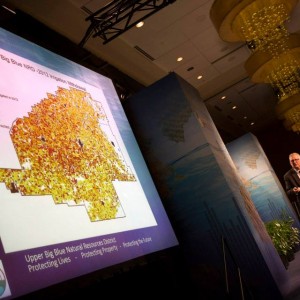The Stream, October 28: Water Access Critical to Ebola Fight in Africa
Health
Africa
Access to clean water is crucial for both treating Ebola patients in Africa and preventing the spread of the disease, according to the aid agency UNICEF, RT reported. One patient needs an estimated 150 liters of clean water a day, approximately 10 times the amount typically available per capita in Liberia.
Water Supply
Asia, Pacific, South America
Rice farmers on 1.7 million acres of land in Thailand will stop receiving water in November as the country’s government tries to conserve water resources, Bloomberg News reported. The move, due to historically low reservoir levels, could hurt farmers and the economy, but also help reduce record rice stockpiles.
This article by The Conversation gives an in-depth analysis of Australia’s history with dams, following the release of a green paper last week that introduced 27 new water and irrigation projects. The article suggests that Australia may be running out of suitable locations for dams.
Scientists working in the Amazon say that deforestation and climate change are disturbing regional weather patterns, leading to the severe drought that is crippling Sao Paulo, Reuters reported. The city, the largest in Brazil, is running desperately low on water supplies, and 14 million people in the metropolitan region have already been affected by shortages.
Climate
Africa, Europe
Refugee camps in Ethiopia, utilized by people fleeing a civil war in South Sudan, are inundated with flood waters, Bloomberg News reported. Approximately 80 percent of facilities within the Leitchuor camp have been destroyed by floods, and much of the camp is accessible only by helicopters and boats, according to aid workers.
The melting of Arctic sea ice caused by global warming is expected to double the risk of extremely cold and snowy winters in Europe and northern Asia, according to a new study from researchers at the University of Tokyo, the Guardian reported. As the ice melts, it will cool the air flowing south to Europe, but temperatures are forecast to resume rising after 2030.
Water Pollution
Middle East, North America
An aquifer in the most important agricultural region in the United Arab Emirates is heavily polluted with nitrates, according to research presented at the 11th Gulf Water Conference, The Gulf Today reported. The studies attributed nitrate pollution in the Liwa Aquifer to agricultural activities, residential development, and the nature of the aquifer itself.
Investigators looking into environmental violations at mines in British Columbia will now have three years to pursue charges instead of six to 12 months due to an amendment to the province’s Mines Act, Mining Technology reported. The amendment follows a large spill of toxic slurry from a breached tailings dam at the Mount Polley mine earlier this year.
A news correspondent for Circle of Blue based out of Hawaii. She writes The Stream, Circle of Blue’s daily digest of international water news trends. Her interests include food security, ecology and the Great Lakes.
Contact Codi Kozacek







Leave a Reply
Want to join the discussion?Feel free to contribute!